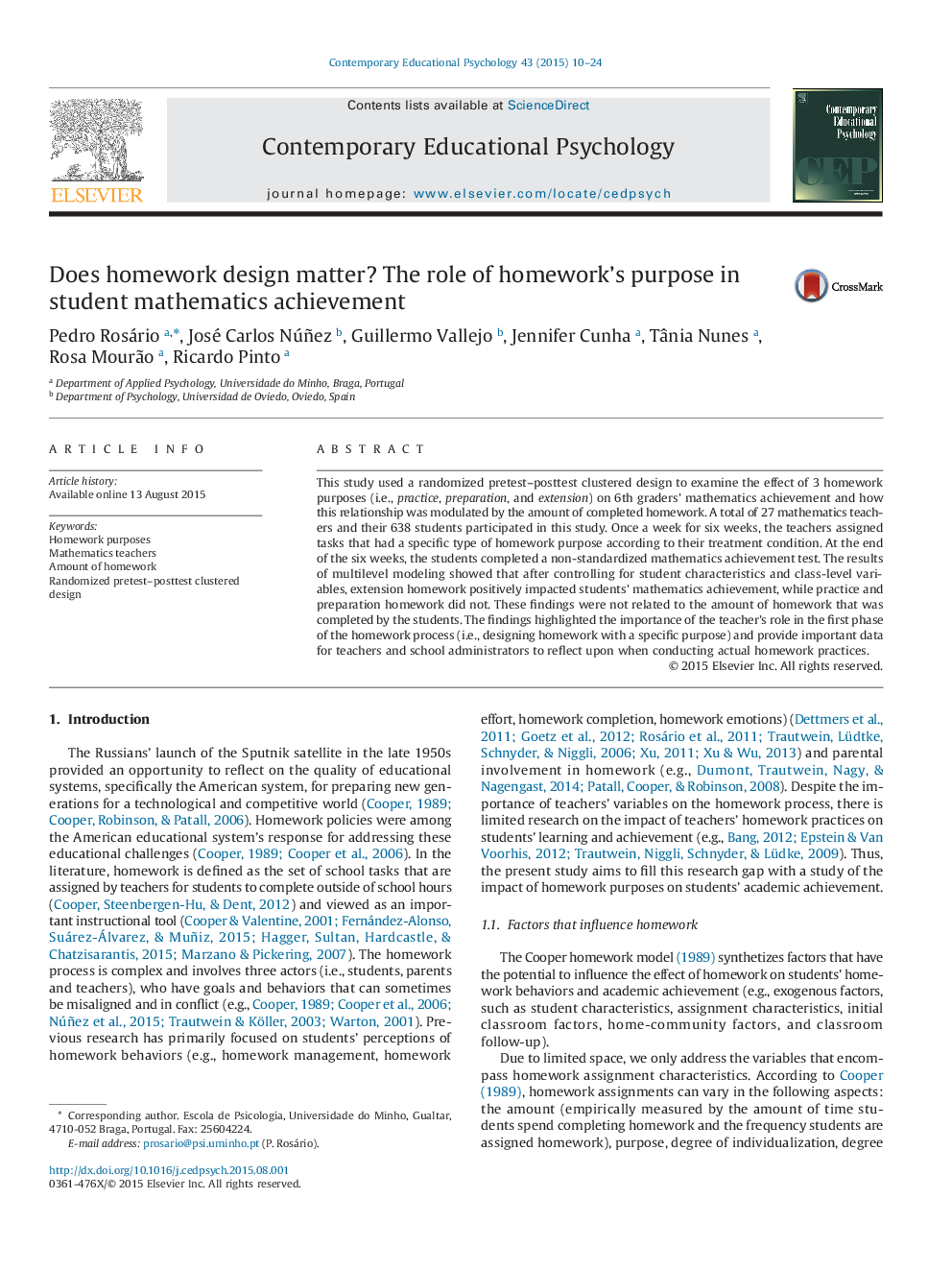| Article ID | Journal | Published Year | Pages | File Type |
|---|---|---|---|---|
| 352561 | Contemporary Educational Psychology | 2015 | 15 Pages |
•A randomized pretest–posttest clustered design in math classes.•Sample of 27 teachers and their sixth grade students (N = 638).•A two-level HLM analyzed three homework purposes (practice, preparation, extension).•Teachers assigned tasks with a type of homework purpose once a week for six weeks.•Homework with the purpose of extension impacted positively on math achievement.
This study used a randomized pretest–posttest clustered design to examine the effect of 3 homework purposes (i.e., practice, preparation, and extension) on 6th graders' mathematics achievement and how this relationship was modulated by the amount of completed homework. A total of 27 mathematics teachers and their 638 students participated in this study. Once a week for six weeks, the teachers assigned tasks that had a specific type of homework purpose according to their treatment condition. At the end of the six weeks, the students completed a non-standardized mathematics achievement test. The results of multilevel modeling showed that after controlling for student characteristics and class-level variables, extension homework positively impacted students' mathematics achievement, while practice and preparation homework did not. These findings were not related to the amount of homework that was completed by the students. The findings highlighted the importance of the teacher's role in the first phase of the homework process (i.e., designing homework with a specific purpose) and provide important data for teachers and school administrators to reflect upon when conducting actual homework practices.
